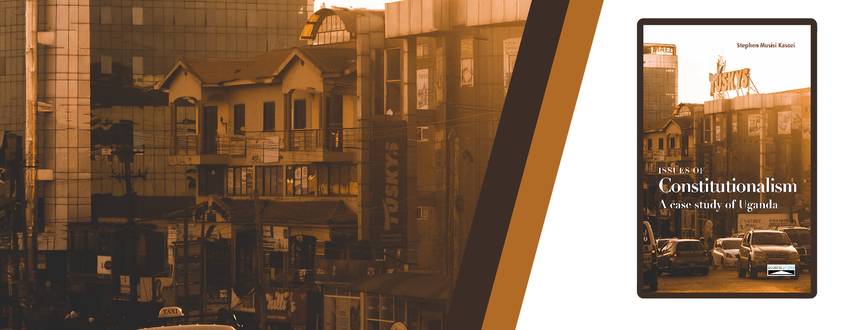News
“Issues of Consitutionalism, a case study of Uganda”, written by Stephen Musisi Kasozi

17 october 2023
Uganda and the issues of constitutionalism, a case study in Uganda
There is a mammoth of literature on the aspect of constitutionalism and constitutional amendments in majoritarian democracies in Africa but also in the entire world. This text deals with one question, “Does the existence of a written constitution a condition enough to satisfy that a majoritarian democracy is a constitutional state?”
Constitution and its historical background
Ancient Greece : The beginning ?
When it comes to “Constitution”, there are really many different opinions as the idea came into existence. Some agreed to date it back to the city-states of ancient Greece, particularly in 834-322 B.C. In fact, Aristotle described a constitution as “creating a frame upon which the government and laws of society are built”.
What about 1215 ?
The new idea of constitution, and constitutionalism can be traced back in 1215, when King John of England was forced by a group of wealthy nobles to signed a document: “The Magna Carta”. This document set certain limits on the king’s power.
This document was the first ever to put into writing that the King of England and his government were no more above the law.
Edward Coke and the Rule of Law
According to the Law teacher, Edward Coke when he said that the king must be under God and Law, and thus vindicated the supremacy of law over the pretentions of executives, is said to be the originator of the concept “Rule of Law”.
Therefore, Law is perceived as more powerful but also higher than the kings and there is nothing higher.
How can constitution be defined ?
Definitions of constitution
Constitution is often defined as a set of rules and principles that defines the nature and extent of government. Others, like Barnett for example, define it as a body or both, or either, written or unwritten rules not only governing the exercise and distribution of state authority, but also governing the relationship between organs of state and, also between organs of state and legal subjects.
Some others like Heffernan and Thompson are of a view that the constitution defines the relationship between the state and society, or between actors who rule and citizens who are ruled. It also sets out how the state operates, which institutions comprise it and how they relate to one another.
Written and unwritten laws
While unwritten law includes laws, whose principles are not recognized, but not written anywhere: Common law and Customary Law. Written law however takes precedence over unwritten law.
A constitution is considered as a fundamental system, full of laws; in any sovereign state. In the first sense of the word, constitution, refers to the nature of a country with reference to its political conditions.
In the second sense of the word refers to the law that concerns itself with the establishment and exercise of political rule. A constitution therefore consists of written laws and also norms that establish and also empower highest organs of government such as executive, legislature and judiciary.
Constitution : duties and supremacy
Constitution and prescriptions
According to Jubril, Constitution, prescribes rights, responsibilities, obligations but also duties. In fact, it distributes, secures and limits authority and powers. It aggregates and articulates aspirations and interests but also outline procedures for actions, interactions and sanctions default.
The vision of Olasunkanmi
Olasunkanmi thinking in terms of the supremacy of the law, he argues that the constitution is supposed to be higher than anybody of legal regulations in human society. According to the Article 2 of the 1995 Uganda Constitution, the Constitution is the supreme law of the land and as such every enactment. Also, judicial decision must conform to the Constitution.
De Smith & Brazier, both reasoned that a constitution, is first, about political authority and location of power, conferment, distribution, exercise and limitation of authority and power among the agents of a state.
According to the Wikipedia, most constitutions, also attempt to define the relationship between individuals and the state, and also establish the broad rights of individual citizens. In fact, usually, constitutions determine the limits of governmental authority and regulate interactions between the state and the country’s citizens.
Tumwine, while quoting Professor Dicey, argued that constitutions in Commonwealth Africa provide for the supremacy of the constitution and that they further provided. Any law which conflicts with the constitution would have no legal force. In fact, any law that conflicts with a constitution is deemed to be unconstitutional and can be declared by the judiciary as null and void in part or its wholeness, the Uganda Referendum Act (in 2000), section of the Divorce Act 9 (in 2005).
If you want to know more about the book “Issues of Consitutionalism, a case study of Uganda”, written by Stephen Musisi Kasozi, you can download it on our website by clicking here.

